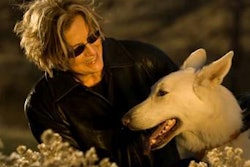Chinese pet owners spent RMB7.84 billion (US$1.25 billion) on pet care in 2012, according to Euromonitor, and this number is predicted to rise 64% by 2017, to RMB12.9 billion (US$2.06 billion). The majority of these sales take place in independent pet shops, though chain stores and e-commerce sites have made significant market inroads. Beijing alone features two pet markets, about 20 boutique shops, over 30 agencies and nearly 400 retail shops. But recent issues regarding pet jerky treats made in China could mean trouble for domestic manufacturers and open the door for foreign companies.
The Chinese pet care market is already dominated by foreign brands, who benefit from well-developed distribution networks and strong brand recognition. Royal Canin Au Yu (Shanghai) Pet Food Co. Ltd. ranks first in dog food sales, and the China subsidiary of US company Mars Inc. ranks first in cat food. Foreign investors from France, Japan, Germany and the US have seized opportunities in the pet care industry in China, investing in markets such as petfood, veterinary clinics and specialized online retailers.
As demand grows in China alongside the continuing questions regarding domestic petfood manufacturing, foreign brands stand to be the greatest beneficiaries of the conflict, and related topics may be at the top of everyone's minds: The 17th meeting of Pet Fair Asia will be held in China in 2014, at the Shanghai World Expo Exhibition & Convention Center, over August 21–24, and the third annual Petfood Forum China, which will take place as part of the larger Pet Fair Asia conference, will focus on the theme of Nutrition, Ingredients and Formulation.















